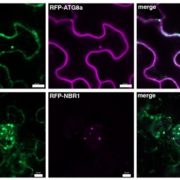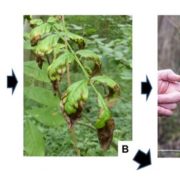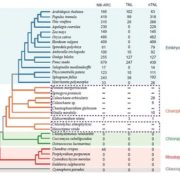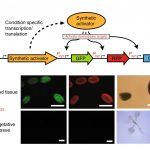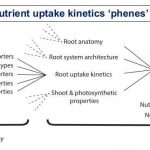Review: An extended root phenotype: the rhizosphere, its formation and impacts on plant fitness (Plant J.)
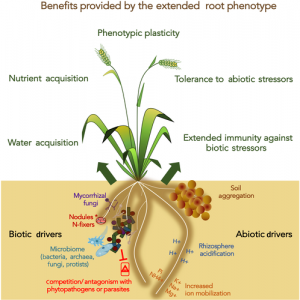 The rhizosphere is a continuous space for microbial colonization that comprises the rhizospheric soil, the rhizoplane (root surface), and the root endosphere, which is the apoplastic space in the root cortex. It is inhabited by unique populations of microorganisms, influenced by plant genotype and the surrounding soil organisms, and has a great impact on plant nutrition and health, so a better understanding of its formation and its interaction with soil and microorganisms is needed. Most research has focused on the impact of the microbiome on plant growth, or the effect of soil on plant-microbe interactions, but the study of three-way interactions of soil-microbe-plants on rhizosphere traits is lacking. In this review, Canto et al. address current understanding of how plants and soil shape the rhizosphere. The authors discuss how plant roots impact soil structure, how plants change physicochemical properties of the rhizosphere, and how microbial communities are impacted by the roots in the rhizosphere. The authors also show how the physicochemical composition and microbial populations in the rhizosphere are beneficial for plants in obtaining nutrition from the soil and to adapt to biotic and abiotic stress conditions. (Summary by Sunita Pathak @psunita980) Plant J. 10.1111/tpj.14781
The rhizosphere is a continuous space for microbial colonization that comprises the rhizospheric soil, the rhizoplane (root surface), and the root endosphere, which is the apoplastic space in the root cortex. It is inhabited by unique populations of microorganisms, influenced by plant genotype and the surrounding soil organisms, and has a great impact on plant nutrition and health, so a better understanding of its formation and its interaction with soil and microorganisms is needed. Most research has focused on the impact of the microbiome on plant growth, or the effect of soil on plant-microbe interactions, but the study of three-way interactions of soil-microbe-plants on rhizosphere traits is lacking. In this review, Canto et al. address current understanding of how plants and soil shape the rhizosphere. The authors discuss how plant roots impact soil structure, how plants change physicochemical properties of the rhizosphere, and how microbial communities are impacted by the roots in the rhizosphere. The authors also show how the physicochemical composition and microbial populations in the rhizosphere are beneficial for plants in obtaining nutrition from the soil and to adapt to biotic and abiotic stress conditions. (Summary by Sunita Pathak @psunita980) Plant J. 10.1111/tpj.14781


